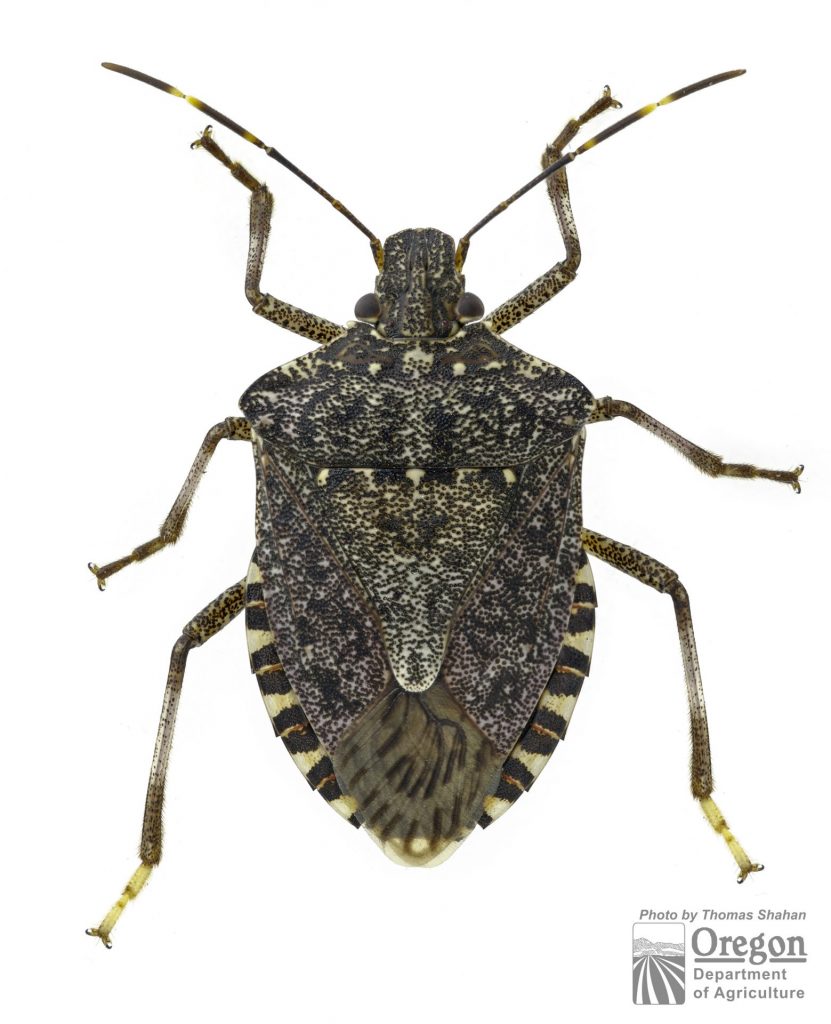Traveling again? Be vigilant and use Find-A-Pest
Our borders are open again, and New Zealander’s and tourists are now able to come and go freely. But with freedom comes responsibility: we must all do our part in preventing unwanted organisms and pests from entering the country in luggage and parcels. Find-A-Pest can help.

Find-A-Pest is a freely available app that empowers people to report potential threats to New Zealand’s biosecurity. The app can be used for any kind of pest that can be identified with a photograph. This includes insects, plants, fungi, and marine and aquatic organisms.
“Once you’ve downloaded the app and signed up, it’s as simple as snapping a photo and hitting send,” says Abigail Evans (University of Canterbury), project manager for the Find-A-Pest programme. “It’s a very simple and easy way to report a range of potential pests.”
Of particular concern at the moment is the brown marmorated stink bug (BMSB). Native to Asia, this stink bug is an agricultural, horticultural, and social pest that has spread throughout North America and Europe.

“In the 2021/2022 season, there were 61 live bug intercepts at our border,” says Abigail. “It’s great to see this pest is actively being stopped and has so far been prevented from establishing here.”
If you find BMSB or some other insect in your luggage or in a parcel you have received from overseas, be sure to capture it and keep it (rather than letting it go) and post a photo on Find-A-Pest.
“We send the record on to the right bioprotection agency, and they determine the next step,” says Abigail. “If you can capture the insect, it will help confirm what you have found and it will prevent that individual from going out and causing damage.”
Abigail stresses that there is no such thing as a “silly” observation.
“Even if you don’t know what it is, it doesn’t matter,” says Abigail. “Every observation is a good observation. If we get hundreds of observations that are not it, but one is, that’s really important. We can then act preventatively instead of letting a new pest get a foothold in Aotearoa.”
And don’t worry – you won’t get in trouble for reporting a stow-away pest insect in your luggage or parcel.
“There is no negative consequence to people for reporting,” says Abigail.
There is also an obligation under the biosecurity act for everyone in New Zealand to report the arrival of new pests to New Zealand.
“We are the only country in the world that has that in our legislation,” says Abigail.
It is also important to report pests that may not be new to New Zealand but are new to a region.
“Pests don’t respect regional boundaries,” says Abigail. “Using Find-A-Pest to report pests that are new to your region ensures that the relevant authorities are made aware of the spread and can act accordingly”
As you and your whānau return from abroad, or return to your region from other parts of New Zealand, please do your part to be vigilant and report possible pests.
“Every report contributes to making a much more effective biosecurity system for New Zealand,” says Abigail.
The app is free to download from Google Play or the Apple App Store. See the Find-A-Pest website for more information on using the app. You can also learn more about threats to Aotearoa New Zealand’s biosecurity on the Find-A-Pest Pest Pages.
Find-A-Pest was created by BioHeritage National Science Challenge Tranche 1 research team Mobile Apps to Keep People Safe, led by Steve Pawson (University of Canterbury).
Posted August 2022.